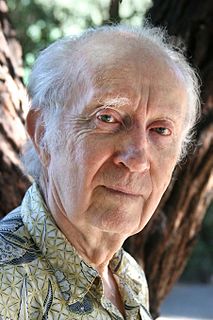A Quote by Michael Shermer
The question itself [of UFOs] I think is legitimate. It's interesting, it's fascinating. It's mythic in scale and one of the grand questions. It's like the God question or, you know, the meaning-of-life question. It's one of those, on that scale. So you'd have to be made of wood not to be interested and, you know, have they come here? Are they up there?
Related Quotes
... placing economic activity in the context of the whole earth requires attention to the question of scale. Bigger is obviously not better, so the optimum scale of human economy in relation to the total economy becomes basically a question of sustainability. When the effects of the economy on the environment undercut the possibility of its own continuance, the scale is too large.
What is there to understand? The significance of life? How long will it take to understand the significance and the meaning of life? 20 years? 30 years? And the same question will be here in another 20 years, I guarantee you. Until you stop asking that question. When that question is not there, you are there. So that's the reason why you keep asking the question: you do not want the question to come to an end. When that comes to an end, there will not be anybody, left there, to find out the meaning, the purpose and the significance of life.
Papers should include more side remarks, open questions, and such. Very often, these are more interesting than the theorems actually proved. Alas, most people are afraid to admit that they don't know the answer to some question, and as a consequence they refrain from mentioning the question, even if it is a very natural one. What a pity! As for myself, I enjoy saying 'I do not know'.
Can a woodchuck chuck wood? Because the question is, "how much wood could a woodchuck chuck if," so you haven't established or proved without any shadow of a doubt that a woodchuck could chuck wood. Frankly, I believe that they chew wood. I don't think they can chuck wood at all! I take offense to the whole chucking question.
See, I think our whole society is much too problem-solving oriented. It is far more interesting to participate in 'problem creation'... You know, ask yourself an interesting enough question and your attempt to find a tailor-made solution to that question will push you to a place where, pretty soon, you'll find yourself all by your lonesome - which I think is a more interesting place to be.
I don't think we should just 'muddle through' and ignore the question of life's meaning. Or better, perhaps, I don't think it is a question that can be ignored once the business of asking about the worth and significance of what one is doing - one's work, one's pleasures, one's ambitions and so on - has got going. You can't at any point stop the urge to ask Tolstoy's questions, '... and then what?', 'What's the point of that?'.






































